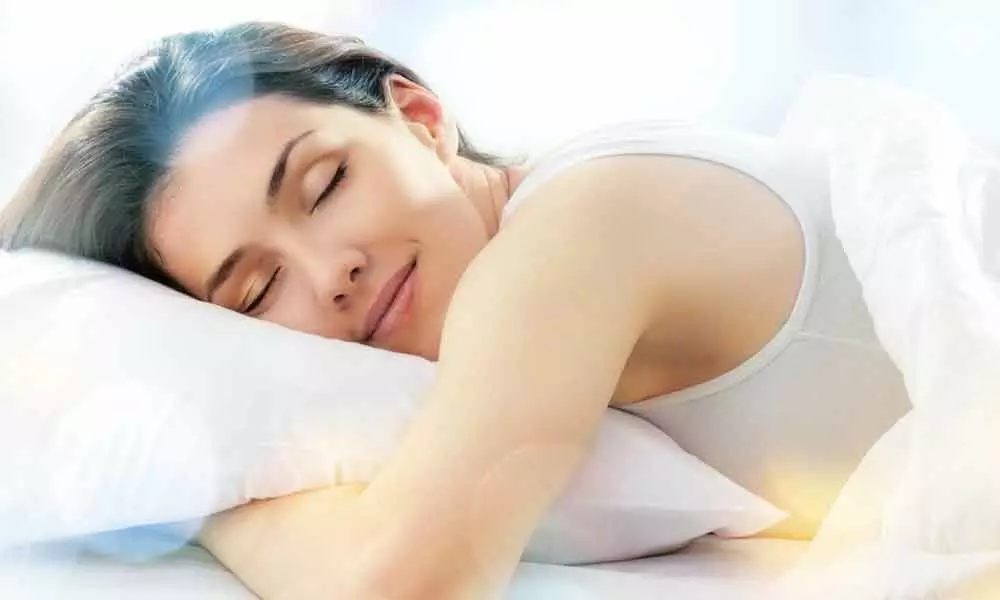Deep sleep acts natural anxiety and stress inhibitor

Studies reveal that deep sleep can rewire stress and anxiety.
Washington: In William Shakespeare's masterpiece 'Macbeth', he had it right when he referred to sleep as the "balm of hurt minds". While a full night of slumber stabilises emotions, a sleepless night can trigger up to 30 per cent rise in anxiety levels, a new study suggests.
UC Berkeley researchers have found that the type of sleep most apt to calm and reset the anxious brain is deep sleep, also known as non-rapid eye movement (NREM) slow-wave sleep, a state in which neural oscillations become highly synchronized, and heart rates and blood pressure drop. The results of the study were published in the journal Nature Human Behaviour, 2019.
"We have identified a new function of a deep sleep, one that decreases anxiety overnight by reorganising connections in the brain," said study senior author Matthew Walker, a UC Berkeley professor of neuroscience and psychology. "Deep sleep seems to be a natural anxiolytic (anxiety inhibitor), so long as we get it each and every night, he added."
"Our study strongly suggests that insufficient sleep amplifies levels of anxiety and, conversely, that deep sleep helps reduce such stress," said study lead author Eti Ben Simon, a postdoctoral fellow in the Center for Human Sleep Science at UC Berkeley.
In a series of experiments using functional MRI and polysomnography, among other measures, Simon and fellow researchers scanned the brains of 18 young adults as they viewed emotionally stirring video clips after a full night of sleep, and again after a sleepless night. Anxiety levels were measured following each session via a questionnaire known as the state-trait anxiety inventory.
After a night of no sleep, brain scans showed a shutdown of the medial prefrontal cortex, which normally helps keep our anxiety in check, while the brain's deeper emotional centres were overactive.
"Without sleep, it's almost as if the brain is too heavy on the emotional accelerator pedal, without enough brake," Walker said.
After a full night of sleep, during which participants' brain waves were measured via electrodes placed on their heads, the results showed their anxiety levels declined significantly, especially for those who experienced more slow-wave NREM sleep.
"Deep sleep had restored the brain's prefrontal mechanism that regulates our emotions, lowering emotional and physiological reactivity and preventing the escalation of anxiety," Simon said.
Beyond gauging the sleep-anxiety connection in the 18 original study participants, the researchers replicated the results in a study of another 30 participants. Across all the participants, the results again showed that those who got more night-time deep sleep experienced the lowest levels of anxiety the next day.
Moreover, in addition to the lab experiments, the researchers conducted an online study in which they tracked 280 people of all ages about how both their sleep and anxiety levels changed over four consecutive days. The results showed that the amount and quality of sleep the participants got from one night to the next predicted how anxious they would feel the next day. Even subtle nightly changes in sleep affected their anxiety levels.
The study points to sleep as a natural, non-pharmaceutical remedy for anxiety disorders, which have been diagnosed in some 40 million American adults and are rising among children and teens. "People with anxiety disorders routinely report having disturbed sleep, but rarely is sleep improvement considered as a clinical recommendation for lowering anxiety," Simon said. "Our study not only establishes a causal connection between sleep and anxiety, but it identifies the kind of deep NREM sleep we need to calm the overanxious brain."
On a societal level, "the findings suggest that the decimation of sleep throughout most industrialized nations and the marked escalation in anxiety disorders in these same countries is perhaps not coincidental, but causally related," Walker said. "The best bridge between despair and hope is a good night of sleep, "he added.








